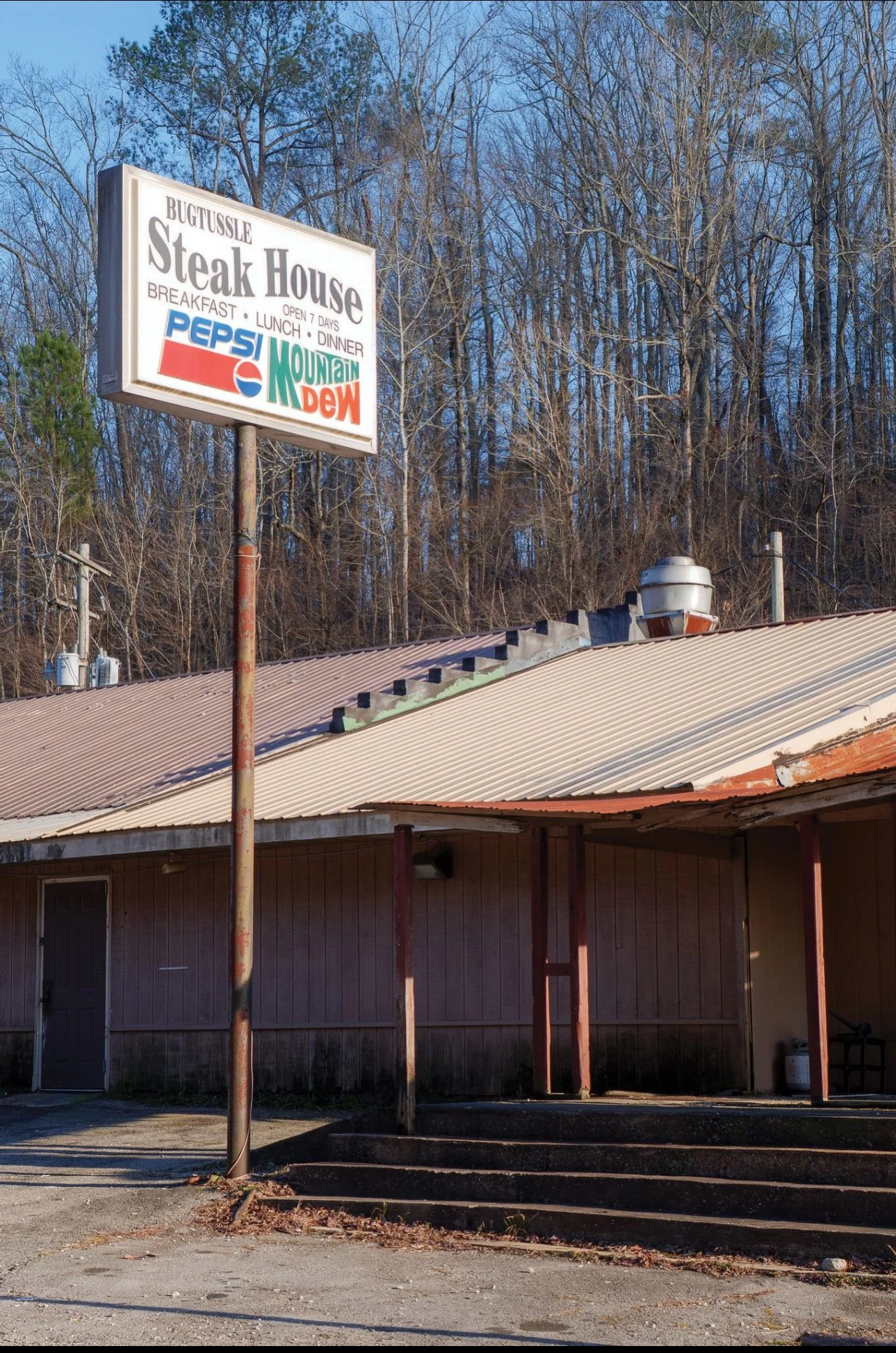Bygone Bug Tussle
A historic community and the stories that keep it alive.
Words by Jenny Lynn Davis | Images by Ryan McGill and courtesy of the Freeman family
If there is one person who can tell you the story of Bug Tussle, Alabama, it is Don Freeman. A lifelong local with deep family roots, Don has spent years piecing together the history of this small, storied community located near the Walker County and Cullman County border. From Civil War veterans to mail-order scandals, a legendary steak challenge and a bit of good old-fashioned moonshining, Bug Tussle is far more than just a dot on the map.
Before it was Bug Tussle, the community was called The Narrows, named for the way it sat snugly between two mountains. But the name that stuck came from a passing traveler, who reportedly spotted insects "tussling" on the ground and joked that they would have a hard time getting out of that valley. The name caught on and Bug Tussle was born.
Long before supermarkets and highways, a general store was the lifeline of Bug Tussle. Built before 1900 by Frank Wilburn, this store was where farmers picked up fertilizer and seed, where workers grabbed a slice of bologna hanging from the ceiling, and where neighbors caught up on local news. The store changed hands over the years, passing through the Freeman family multiple times. Don’s father, Johnny, ran it twice, once during World War II and again in 1949.
The Freemans roots run deep in Bug Tussle’s history. Don’s great-great-grandfathers fought in the Civil War, and his ancestors helped settle the area, build businesses, and sustain the community through tough times. One of the most well-known Freemans was Fiddlin' Tom Freeman, Don’s grandfather, who played at local gatherings, political rallies, and even for Franklin D. Roosevelt. His music brought people together in a way that only a good fiddle tune could. The Freeman name is tied to nearly every chapter of the town’s past, making Don a natural historian for the place he calls home.
In more modern history, Bug Tussle Steakhouse came to be. One of the biggest draws of the Bug Tussle Steakhouse was its legendary steak challenge. If you could finish a 64-ounce steak, along with a potato and a salad, the meal was free. According to Don, only one man ever managed to conquer the challenge, and he did not just stop at the steak. After polishing off his plate, he ordered coffee and pie for good measure.
"That man got his money’s worth," Don says with a chuckle. "Or rather, he did not have to pay at all."
Bug Tussle also made headlines in the 1930s for an entirely different reason. When mail-order catalogs like Sears and Roebuck started offering credit, locals took full advantage. The only problem was that they never intended to pay.
"They ordered all kinds of things, bicycles, shoes, even fancy clothes," Don explains. "But when the bills came due, nobody paid."
Things escalated when folks started using fake names, even their dogs’ names, to place orders. The scheme eventually caught the attention of federal authorities, and the FBI was called in to investigate. The Birmingham Age-Herald ran a story about the scandal in 1937, putting tiny Bug Tussle on the map in a way no one had expected.
Like many small Southern towns, Bug Tussle had its fair share of moonshiners. During Prohibition and beyond, locals relied on bootlegging to make ends meet. Don remembers one story in particular that still gets a laugh.
"My grandfather told me about a hog that fell into a mash vat," he says. "They pulled it out, but they sure did not waste that batch of whiskey."
"Extra flavor," his wife Ann chimes in with a grin.
While Bug Tussle has changed over the years, its legacy lives on through stories like these. The store may no longer be the bustling hub it once was, and the steakhouse has long since closed, but the spirit of the town remains in the memories of those who called it home.
Don Freeman sees himself as a keeper of that history, preserving the tales of hard work, good humor, and the kind of neighborly spirit that defined Bug Tussle. And as long as folks keep sharing keep sharing stories, the town’s legacy will not be forgotten. 78


